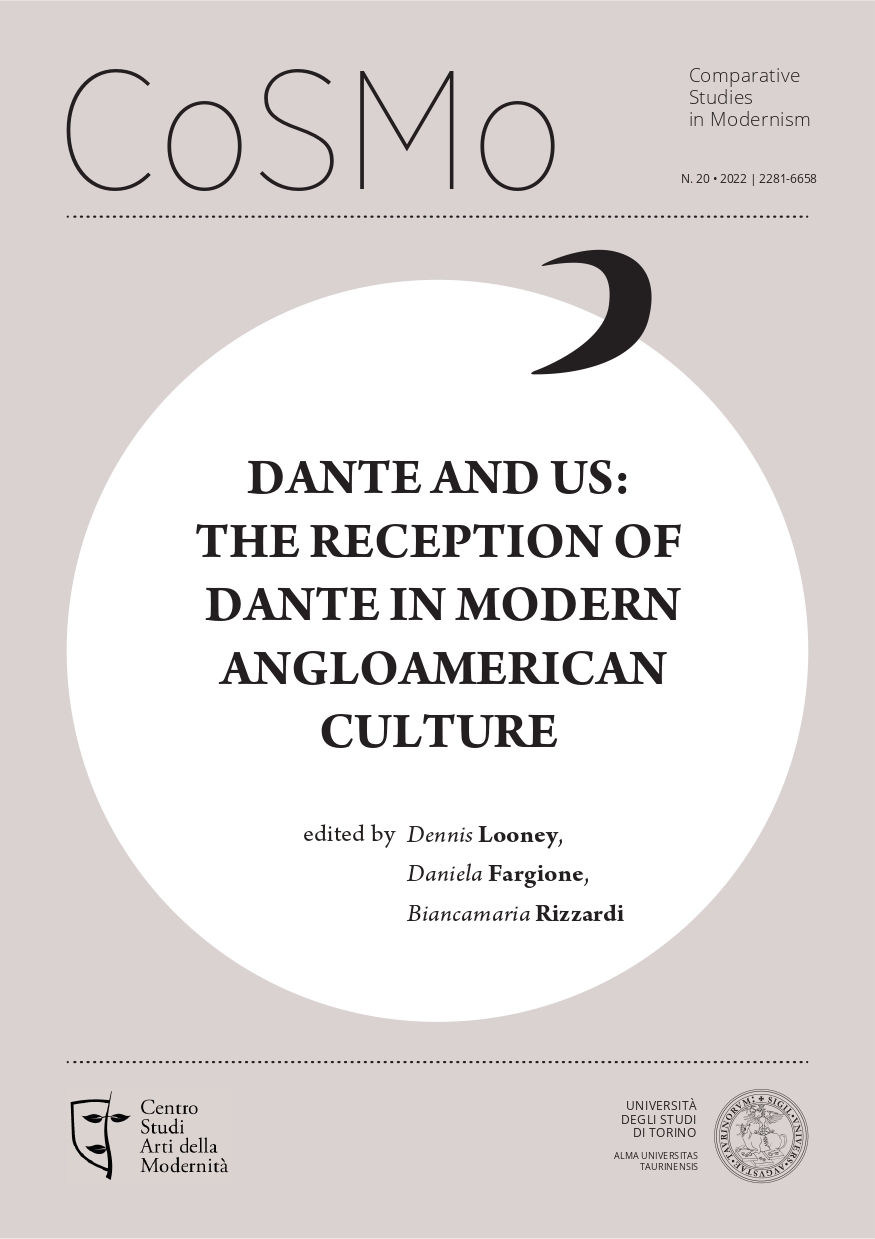“What Dante Means to Me”
Dante and Eliot among American Modernists
DOI:
https://doi.org/10.13135/2281-6658/6516Keywords:
Modernism, Influence, Translation, Hell, ConversionAbstract
The paper takes its title from a lecture given by T.S. Eliot in 1950, in which he pointed out the lessons Dante had taught him. In fact Dante remains Eliot’s chief model and point of reference throughout his work. His first collections present characters and encounters reminiscent of Dante’s dialogues with the damned and purging souls in the afterlife. Eliot saw in Dante “the great master of the disgusting”, authorizing his own descent into the sordid world of the Sweeney poems of 1920. But Dante is also a guide to an earthly paradise, to bliss and acquiescence in God’s will – states of mind approached in the poems written after Eliot’s conversion, which are meditative soliloquies rather than confrontations with others. In Dante Eliot detected, surprisingly, “the Catholic philosophy of disillusion”, that is, his own somber view of fallen humanity. This position is shared to some extent by Robert Frost (whose characters are often in pain, and whose worldview is dark, if ironic). Other modernists, like Wallace Stevens and Ezra Pound, are more optimistic about the pursuit of worldly happiness, and so come well within Protestant tradition. Dante is barely alluded to by Stevens, who attempted to write as if there were no precedent, while the entire project of Pound’s Cantos is Dantean, even in the violence of their denunciations and maddening topicality, as well as in their recurrent revelations of a proximate paradise.
Downloads
Downloads
Published
Issue
Section
License
Authors keep the copyrights for their work and give the journal the work’s first publication copyright, which is at the same time licensed under a Creative Commons License – Attribution, which in turn allows other parties to share the work with an acknowledgement of the work's authorship and initial publication in this journal.
Content Licence

You are free to copy, distribute and transmit the work, and to adapt the work. You must attribute the work in the manner specified by the author or licensor (but not in any way that suggests that they endorse you or your use of the work).
Metadata licence

CoSMo published articles metadata are dedicated to the public domain by waiving all publisher's rights to the work worldwide under copyright law, including all related and neighboring rights, to the extent allowed by law.
You can copy, modify, distribute and perform the work, even for commercial purposes, all without asking permission.





